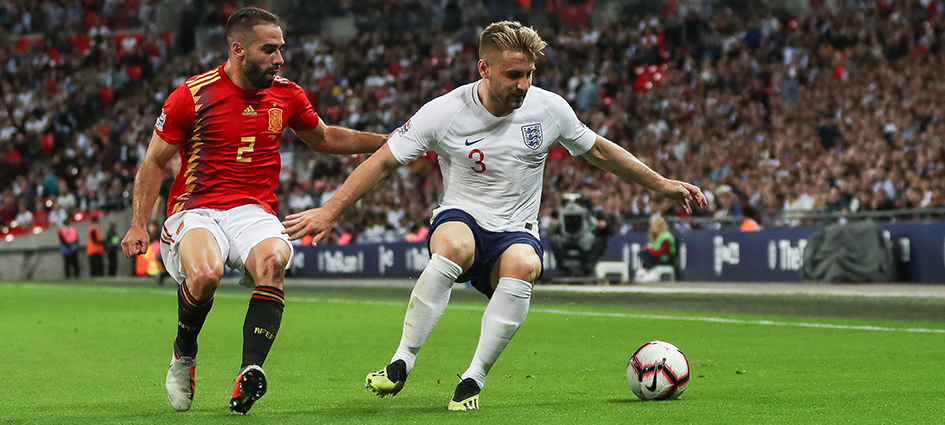
Luke Shaw: my development journey
- The Boot Room
- 20 May 2020
England defender, Luke Shaw, shares his own pathway from the age of 12 to 16 years old. He emerged from the Southampton FC academy and highlights some of the key reflections from his journey and the important role coaches played in his development.
Each individual person and each individual journey is unique. Recorded in 2018/19 season, this solely provides one England international player’s personal reflection on what was important to him in his journey.
Enjoyment is at the heart of ‘loving the ball and loving the game’ and in the Youth Development Phase coaches must avoid being a reason why children fall out of love with the game. Each individual has their own personality and their own unique journey, and will develop at different rates and at different times. Some players play similar positions throughout their journey, others play a variety of positions throughout their entire career.
Before watching the video, here are some questions to consider as a coach:
- How do you foster a ‘love of the ball and love of the game’ in the players you coach?
- As a coach, what do you do to meet the unique individual needs of each young person in order to help them thrive?
- How do you decide the extent to which a player needs to further explore different positions or maybe begin to specialise in a particular position?
As children grow, mature and develop through early adolescence, their capabilities also change and it’s important to adjust your coaching to challenge each player accordingly. Relative age effect (the impact of being born early or late in their peer group) is something all youth coaches must consider and as well as their physical differences, they also learn at different stages and rates. Some of these 16-year-olds will soon play with adults across all levels and formats of football, so as well as themselves changing a lot – their external footballing landscape does too.
- Do you help the young players to explore their own unique changing capabilities?
- What impact might being born early or late have on individual players?
- How can you help appropriately prepare young people for future challenges?
As well as their bodies going through stages of development, players' learning develops at individual stages and rates too. Coach–player relationships are vital to get the best out of players, and having a clear focus on developing individuals within the team is crucial for all Youth Development Phase coaches.
- How might you provide appropriate challenge to players whilst ensuring they don't skip vital areas of learning?
- How do you build relationships to provide a safe environment, appropriate for adolescent players?
- To what extent do you focus on the individual development of players?
The purpose of this article is to provide one real-life example of a developmental journey in order to provide points of consideration when coaching players in the Youth Development Phase. Each individual is unique and it’s important to reflect on this in order to figure out what this means for you when appropriately coaching 12-16 year old children.
To find out more, explore our Youth Development Phase DNA playlist.


